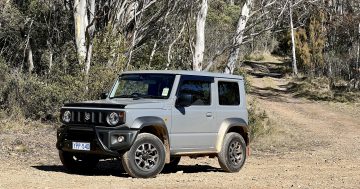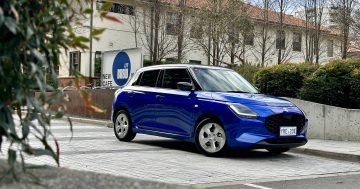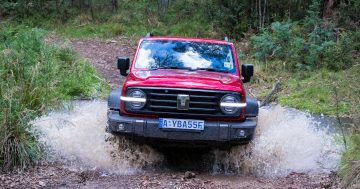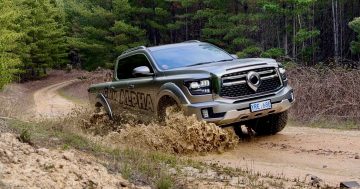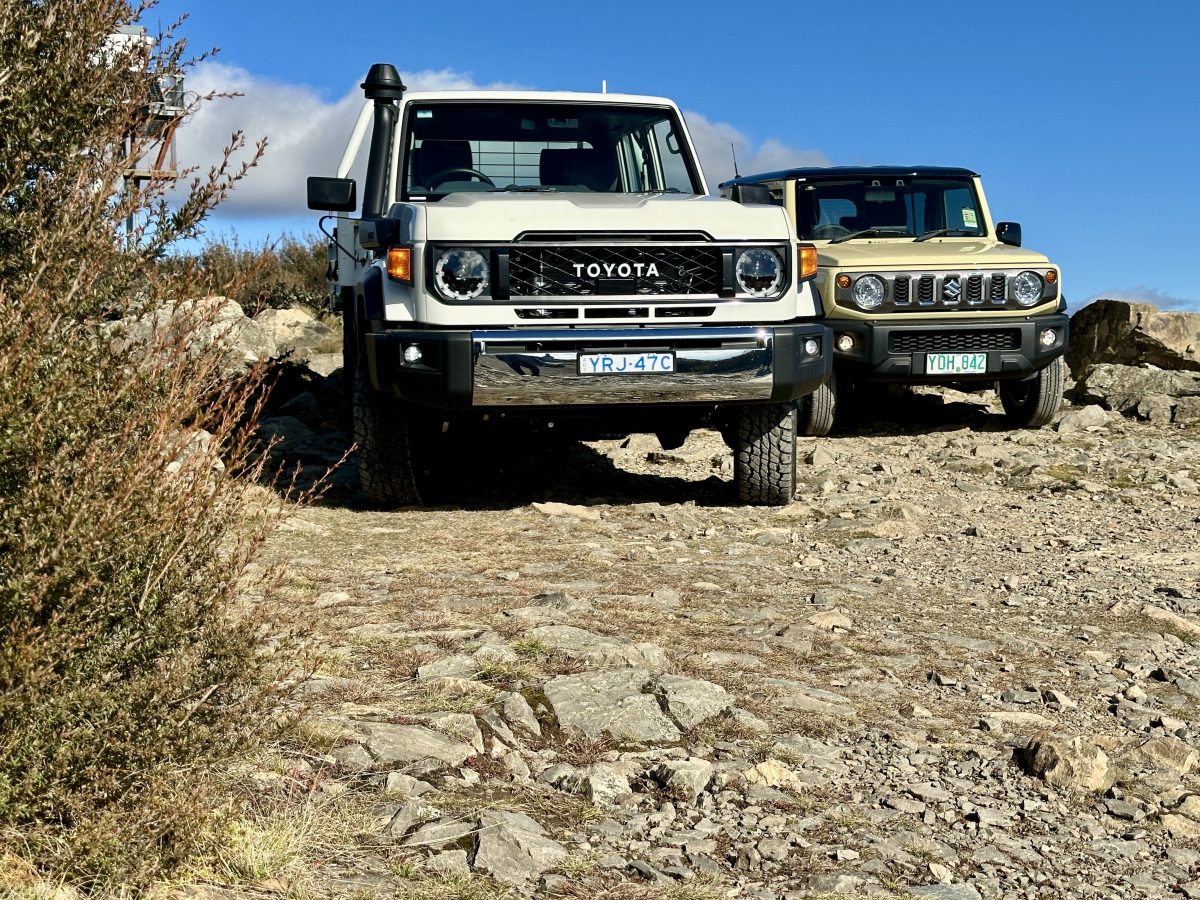
The Toyota LandCruiser 70 and Suzuki Jimny XL at the summit of Mount Coree, ACT. Photo: James Coleman.
The king graced the top of Mount Coree with his presence on Monday.
Of all the 4WDs perched atop the ACT’s second tallest mountain for the King’s Birthday public holiday, one was clearly drawing the most envy from the other men in cargo pants.
Yep, the Toyota LandCruiser 70. The king off the road. Now updated for 2024, with um … LED headlights and a touchscreen inside. The rest is pure – and many will say, glorious – 1984.
Hiding in the shadow of its tow ball was a close second, the Suzuki Jimny XL, a new four-door version of the car we all secretly love – because it looks like a Matchbox toy.
With all this talk of fuel-efficiency standards and how we’ll have to come up with another name for the Snowy Mountains, it’s easy to assume both these vehicles are members of a dying breed of bare-boned 4WDs. Rest assured – there’ll always be a market for venturing into places no Tesla will dare.
That said, there have been some changes.
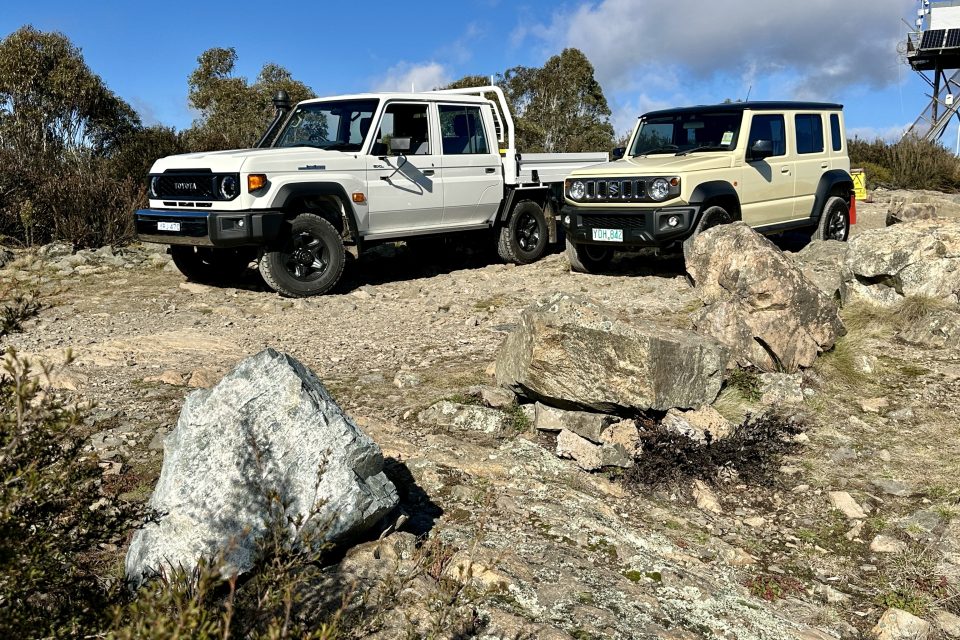
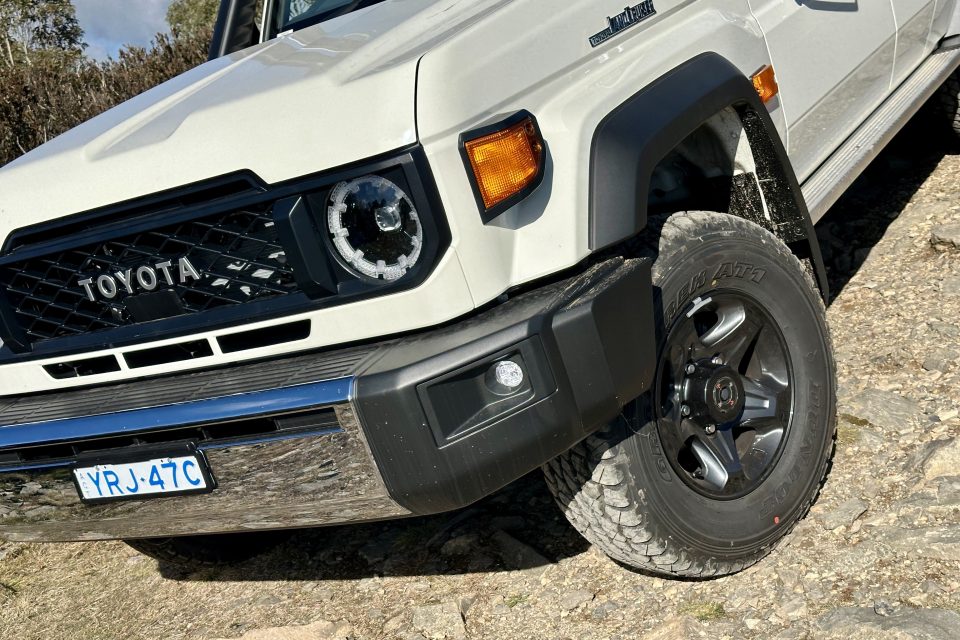
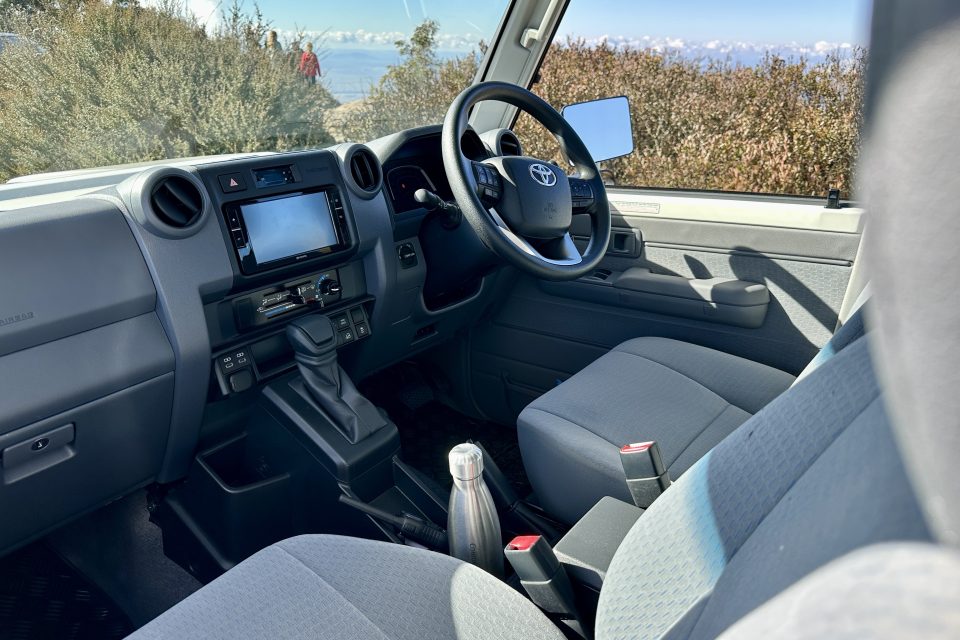
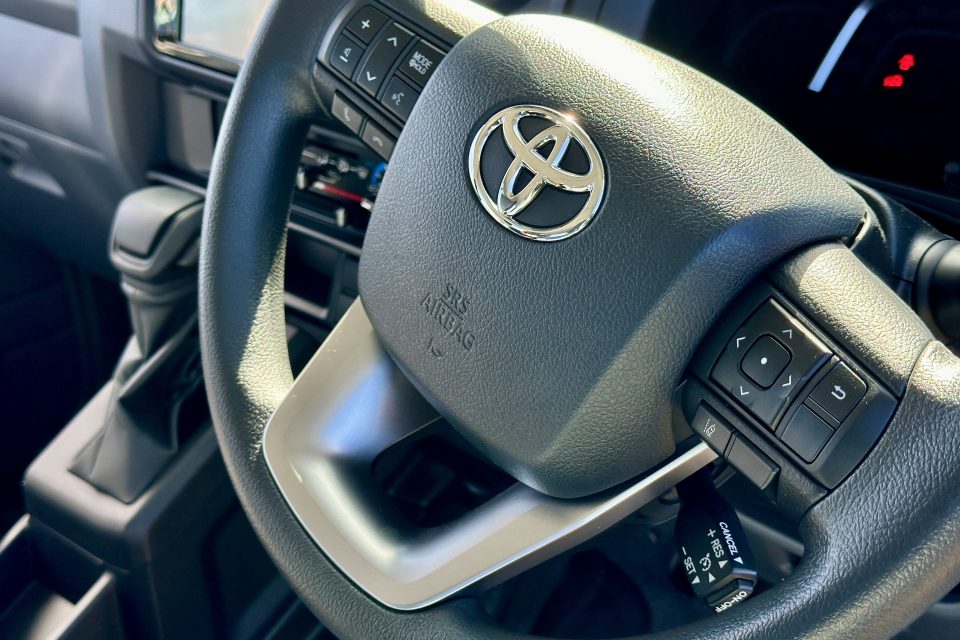
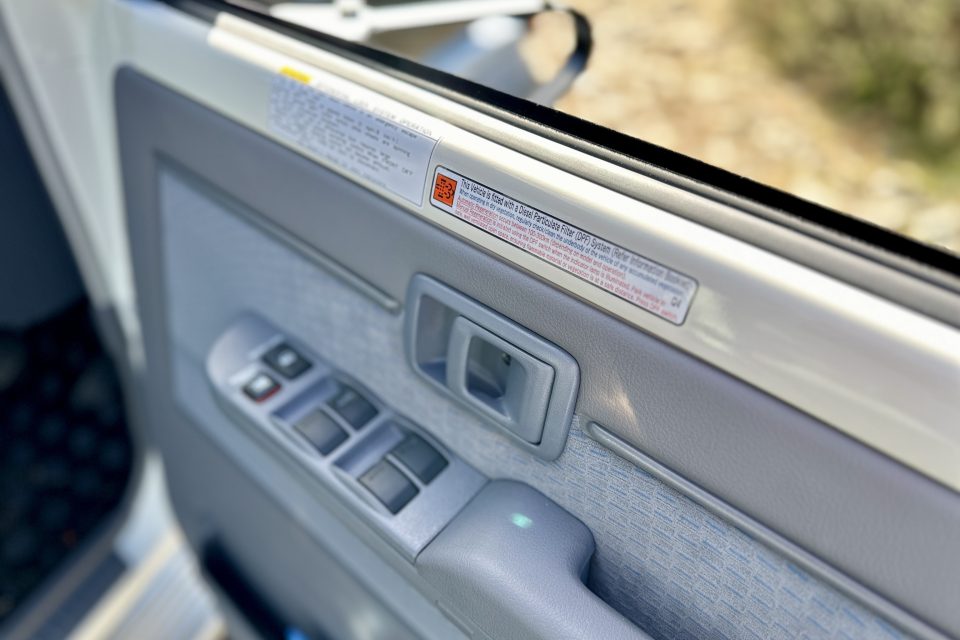
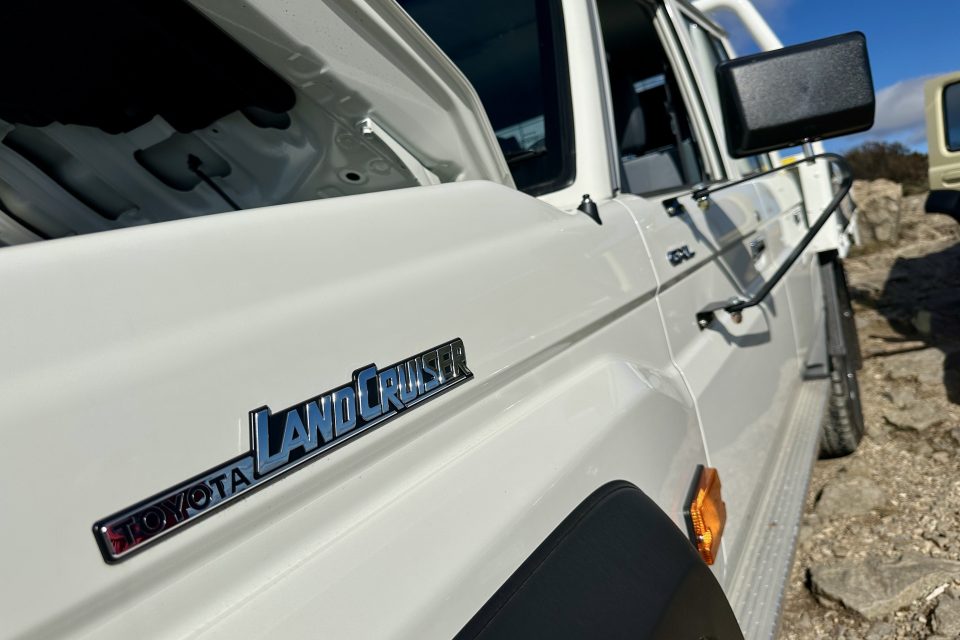
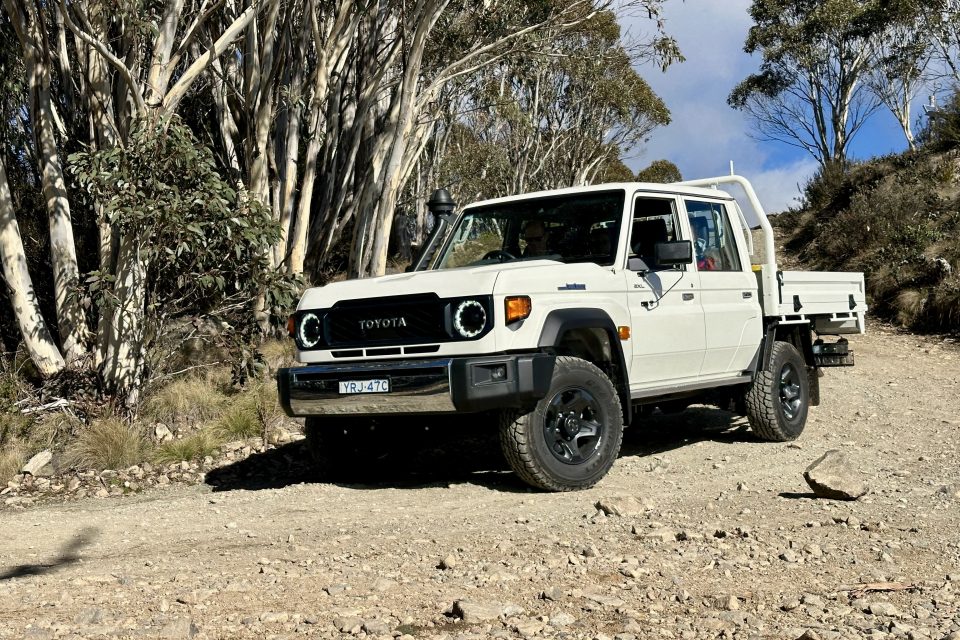
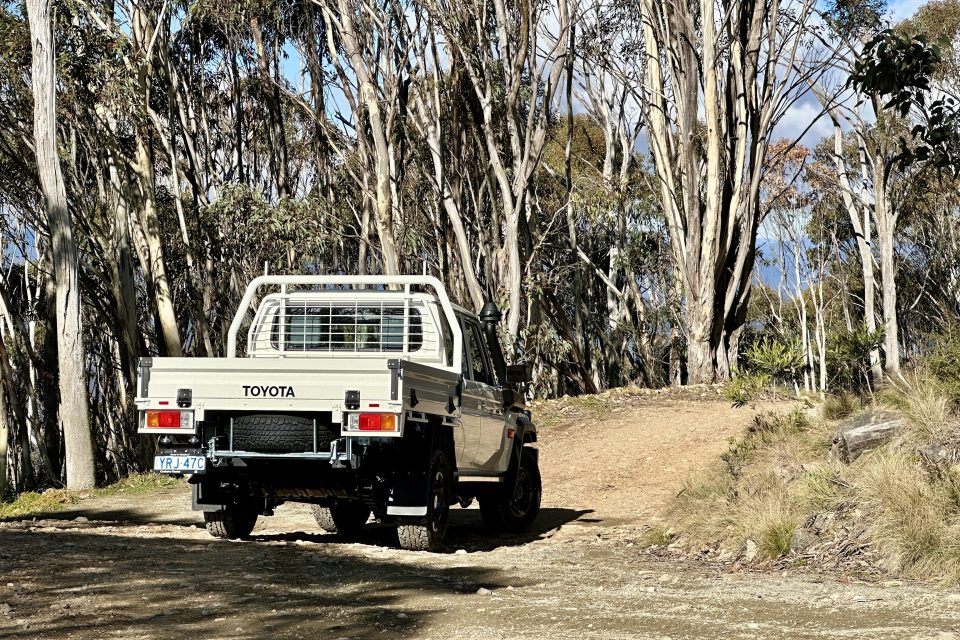

The LandCruiser now comes with a new alpine-friendly 2.8-litre four-cylinder turbo diesel engine option, alongside its old 4.5-litre V8 turbo diesel.
Before you take to Japan with pitchforks, however, it makes one less kW of power and 70 more Nm of torque. And offers the same towing capacity of 3500 kg and, depending on the variant, a payload range between 1115 kg and 1380 kg, or more than the V8.
It also comes as an automatic.
And in the interests of a fair playing field, my Jimny XL is also a four-speed auto. No point mentioning towing capacity or payload here though.
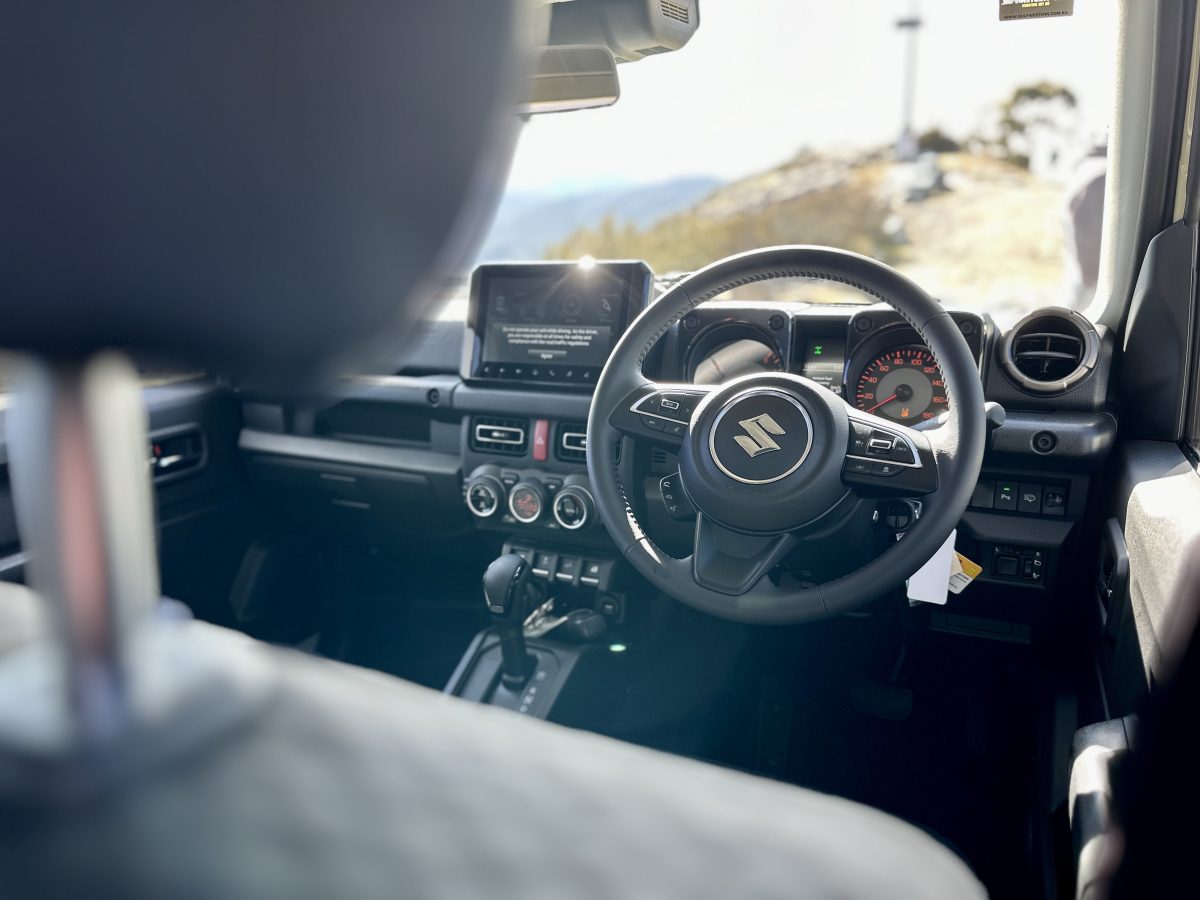
Inside the Jimny. Photo: James Coleman.
The LandCruiser, of course, traces its roots back to the original Toyota BJ ‘Jeep’ the US Government asked them to make for the Korean War, but over the years it has traded the plain workhorse needs of farmers and rangers for the luxuries of plush carpets and heated seats.
The 70 is a return to its roots – a near verbatim remake of the J70 LandCruiser from 1984.
The Jimny started out life as one of Japan’s miniature ‘kei’ cars. Suzuki took the little off-roader from the bankrupt ‘Hope’ company to create the Light Jeep 10 (LJ10) in 1970. The result took Suzuki global, and left a big impression here in Australia (not literally, of course).
Both vehicles also began cheap, and neither are that way anymore. The Jimny XL is available in one GLX grade from $34,990 and our ‘Double Cab Chassis’ LandCruiser – also somehow GLX – from $83,500. Rich farmer material now.
They’re boats to drive on the road. The steering is vague to the point it’s not uncommon to be driving straight ahead with the wheel turned and the bodies pitch and yaw in the corners. Both feel surprisingly stable though.
A lack of oomph has been a criticism of the Jimny’s 1.5-litre petrol four-cylinder from the get-go. If only it was a turbo-diesel, people say. But with three doors and a kerb weight of 1100 kg, there really wasn’t much point. It’d be like swapping out the motor in your toothbrush for one from a blender – you’d just end up needing a lot of fillings.
Add two extra doors and 90 kg, however, and the proposition makes more sense. Away from lights, the Jimny XL could be overtaken by a windswept leaf.
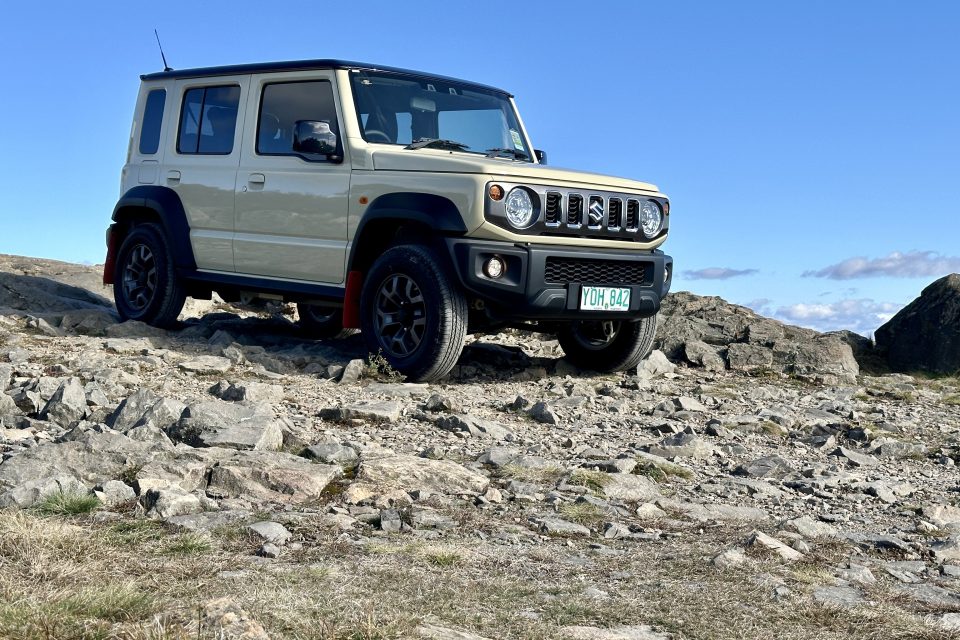
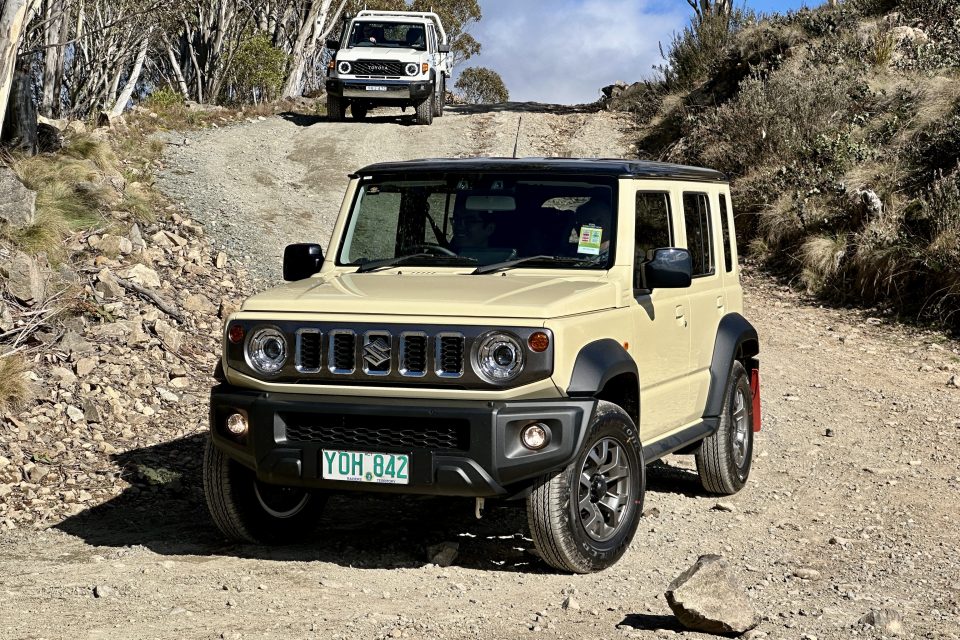
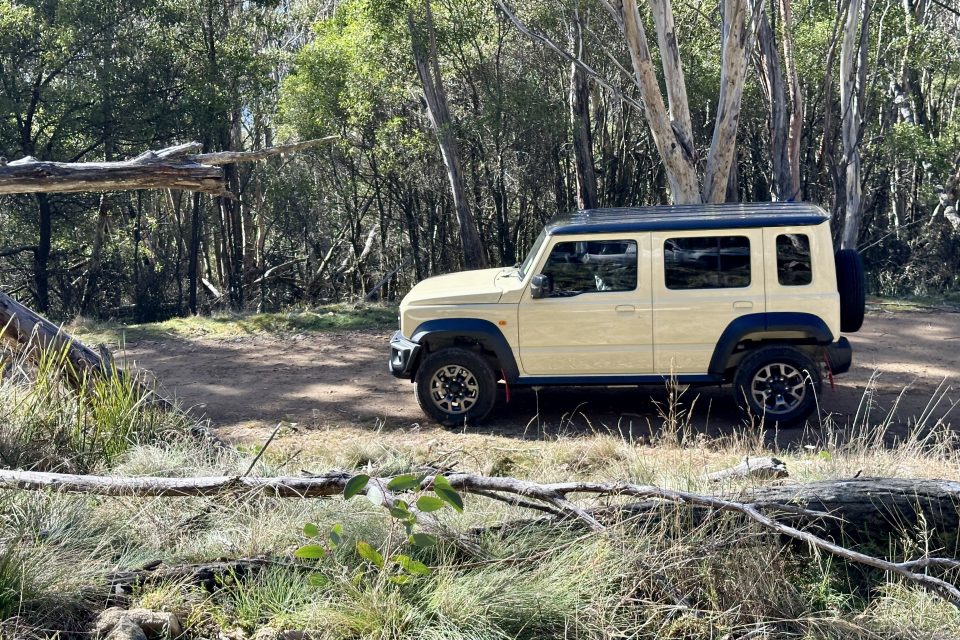
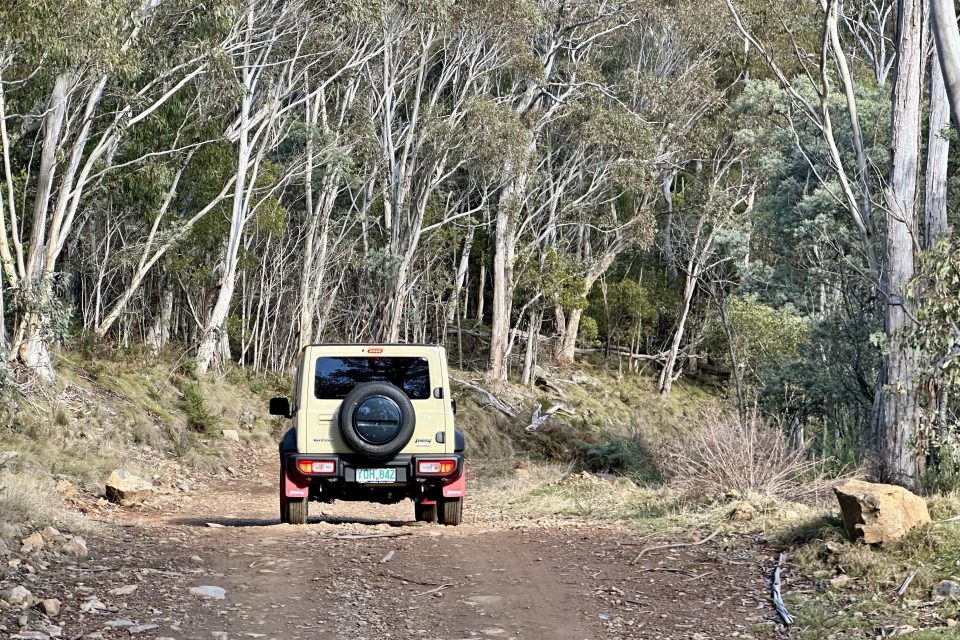
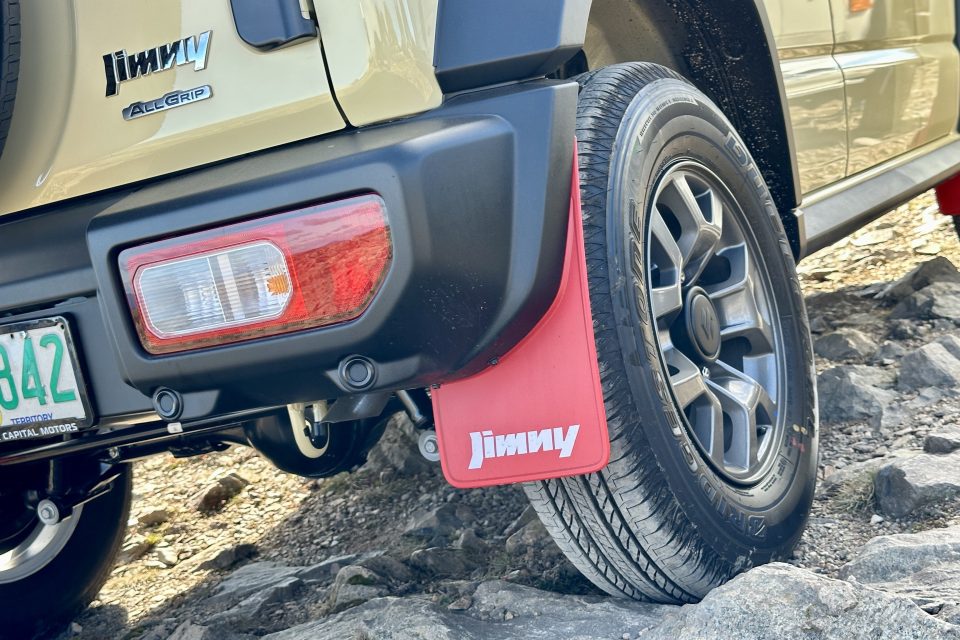
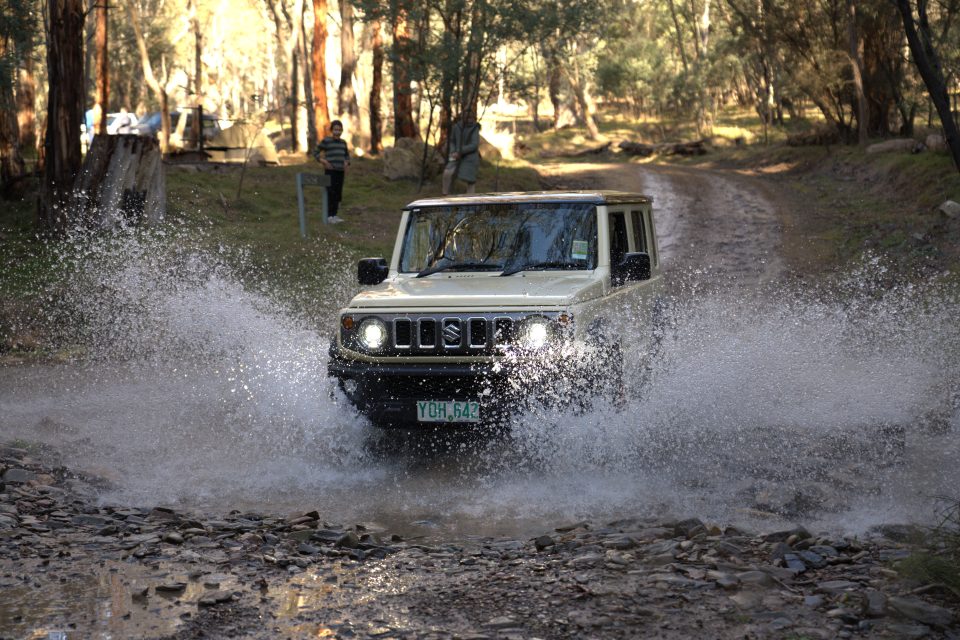
As a vehicle designed to do actual work, the LandCruiser weighs more than two Jimnys and offers a lot more grunt.
It also makes the Jimny feel lavish. Toyota’s website crows about how “air-conditioning comes as standard”. The doors have to be slammed. The lever for high and low-range is set in concrete. The only nod to the 21st century is a new 6.7-inch touchscreen with phone connectivity.
And puzzlingly, lane-keeping assistance. I can see a lot of owners wanting to burn their LandCruiser 70 when this beeps at them.
Our initial drive along Two Sticks Trail and up Mount Coree was to be followed by a dive down into the holy grail for local 4WD-ers – the steep and rocky trail to the McIntyre’s Hut campground. But we ended up a little lost, and along a muddy powerline service trail instead.
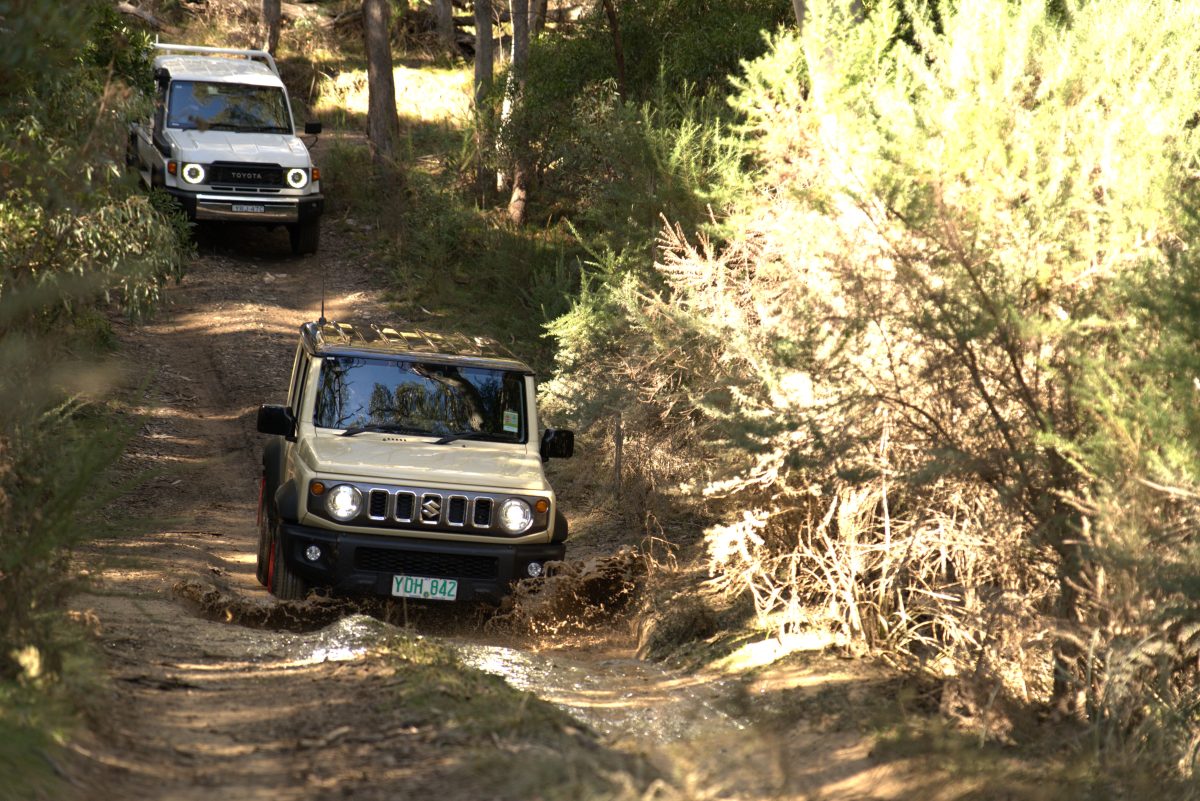
Into the mud. Photo: Harrison Cheng.
The Jimny looked as happy as a rabbit, bounding along the ridges and in and out of the ruts without a care.
Inside the LandCruiser, I was watching most of it from the driver’s side window. I had tried to follow the 4WD-ing handbook and keep the tyres out of the ruts, but the slippery clay was having none of it. Not that the LandCruiser was fussy – I was powering through … just a little diagonally.
The true-blue off-roaders will still scoff, but the joy of an automatic gearbox is you don’t emerge at the end of the drive to the smell of a smouldering clutch. And the combined effect of low-range and hill-descent control meant we didn’t even miss picking gears ourselves.
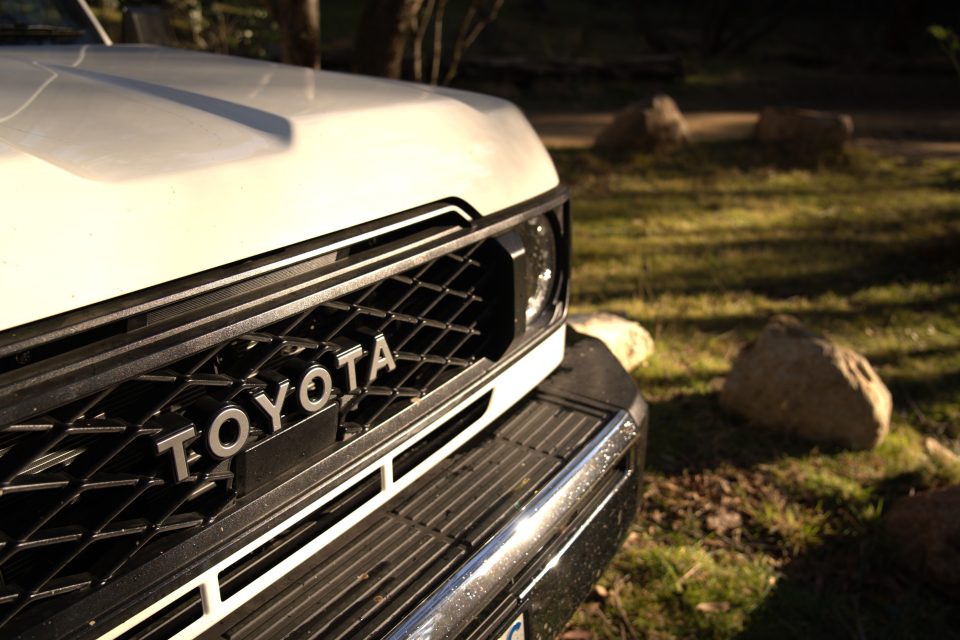
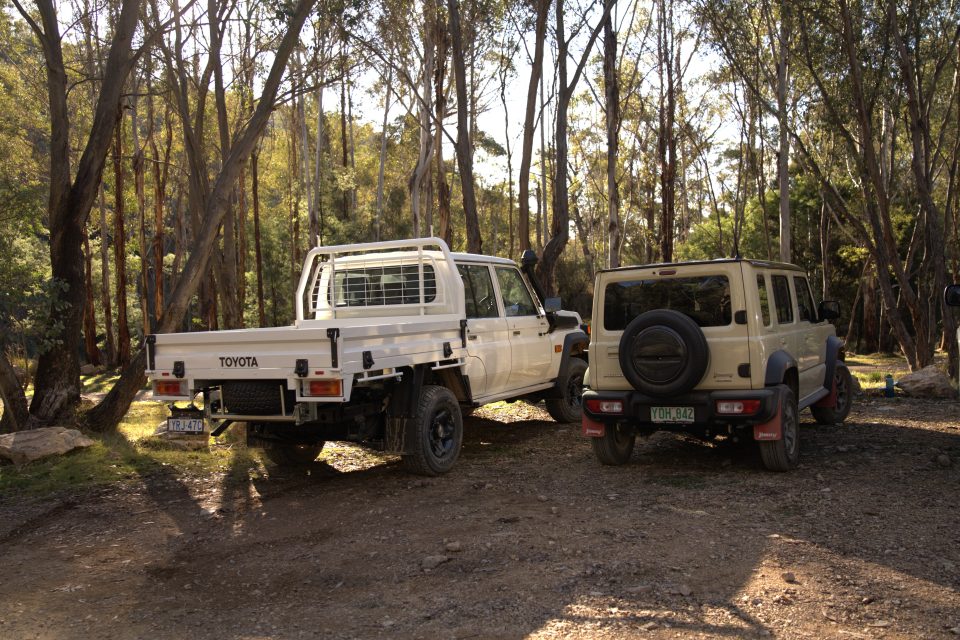
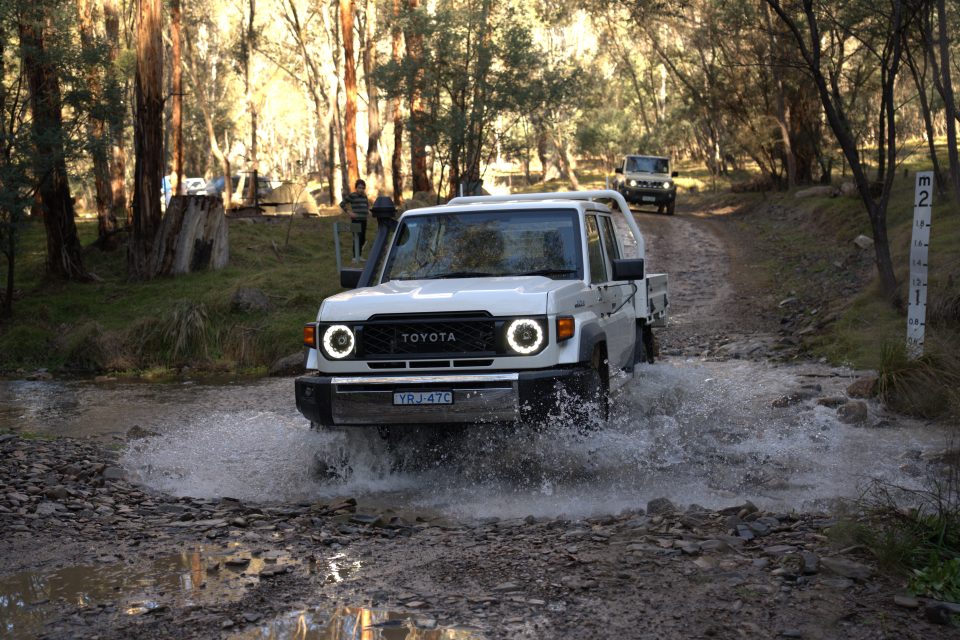
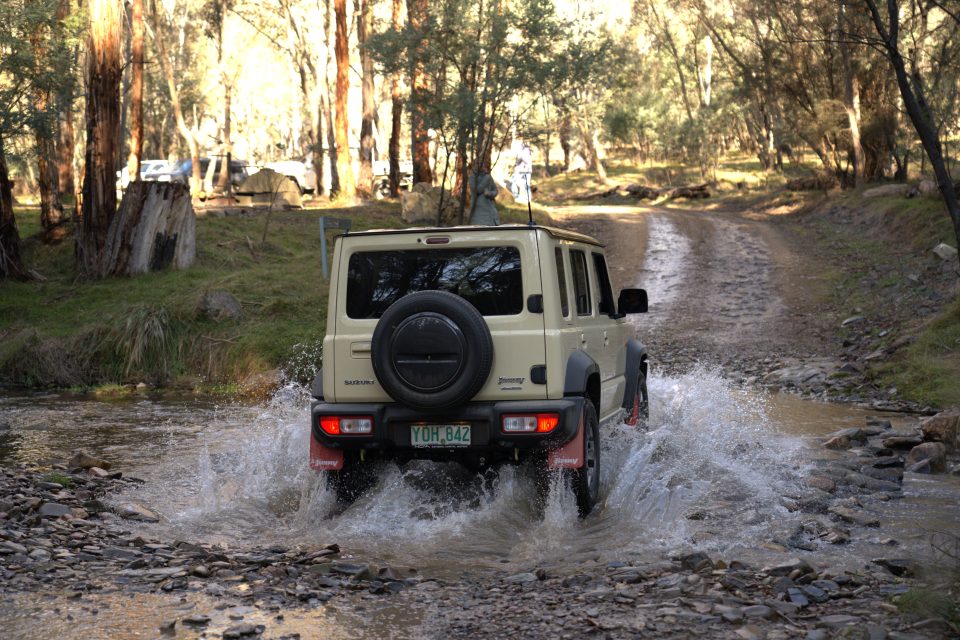
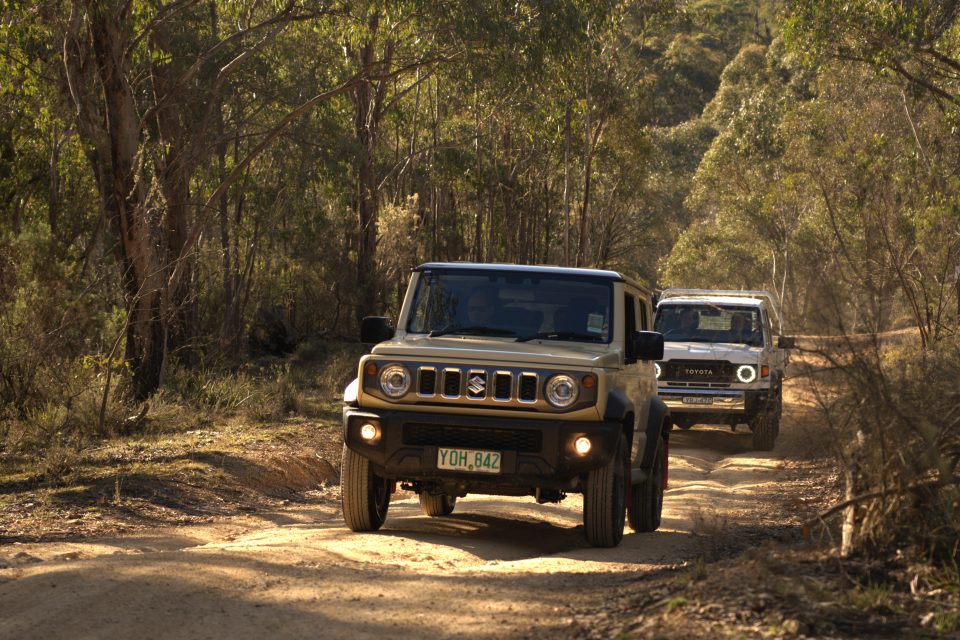
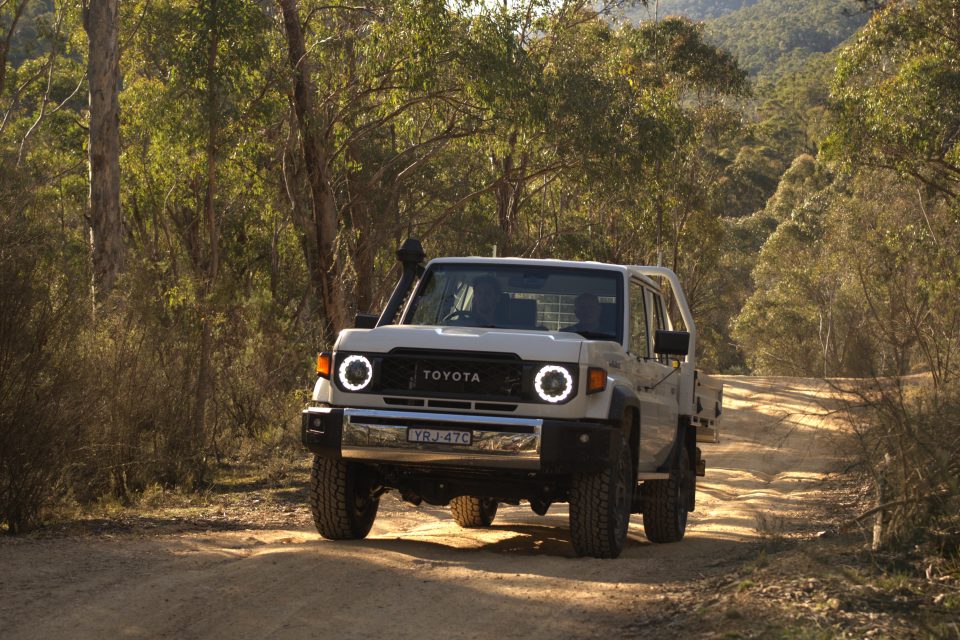
If you’re expecting a winner to emerge victorious from this expedition, there isn’t one. For a very simple reason.
If you’re the sort of person who buys a LandCruiser 70, you’re not even giving anything else a moment of your time. And the Jimny has clearly attracted a similar cult following (other Jimny drivers will beam and wave at you like they’ve known you for years).
Yes, they’re both a bit pointless. And resting on the laurels of old. Plenty of 4WDs could complete our expedition through the Brindabellas just as fluently and with added 21st century to boot.
But they wouldn’t be a LandCruiser 70 or a Jimny. And therefore not as cool.
2024 Toyota LandCruiser 70 GXL Double Cab Cab-Chassis
- $83,500 (plus driveaway costs)
- 2.8-litre turbo diesel, 150 kW @ 3400 rpm / 500 Nm @ 1600 to 2800 rpm
- 6-speed automatic, 4WD
- 9.6 litres per 100 km estimated average fuel usage, 130 litre fuel tank
- 3500 braked towing capacity
- 2185 kg (kerb weight)
2024 Suzuki Jimny XL GLX Auto
- $34,990 (plus driveaway costs)
- 1.5-litre petrol, 75 kW @ 6000 rpm / 130 Nm @ 4000 rpm
- 4-speed automatic, 4WD
- 6.9 litres per 100 estimated average fuel usage, 40 litre fuel tank
- 1300 braked towing capacity
- 1200 kg (kerb weight)
Thanks to National Capital Suzuki, Tuggeranong, and Canberra Toyota, Phillip, for providing these cars for testing. Region has no commercial arrangement with either dealership.












